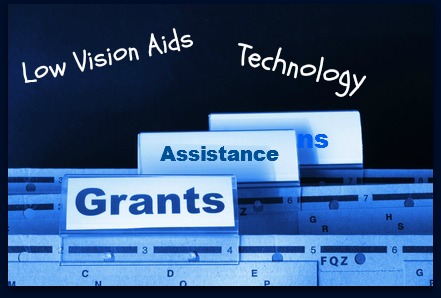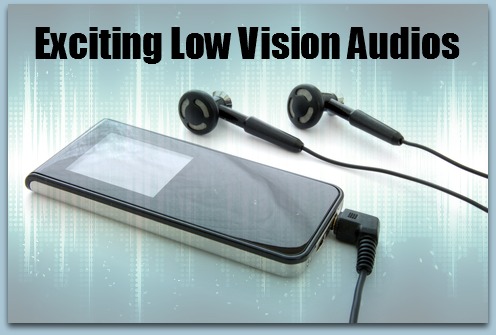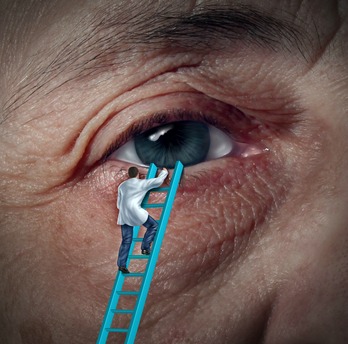Living with Low Vision
While living with low vision is difficult, there are ways to overcome the negative feelings that come with diagnosis.
Thriving despite your physical condition comes down to mastering three areas in your life:
- Mental/emotional
- Diet
- Technology

Mental/Emotional Aspect
There’s no denying that seeing your sight deteriorate causes negative emotions, such as anger, frustration, fear, and nostalgia of times when it was something you may have taken for granted.
Watch out for depression, as this is an outright disease of its own and can turn catastrophic if you don’t get a handle on it.
For this reason, I encourage you to seek out low vision support groups in order to get around others who may be experiencing their own form of low vision, such as macular degeneration, cataracts, glaucoma, or as I do, Angioid streaks.
That’s right, I understand because I’ve dealt with low vision for over 25 years. Through my own experience, I know how vital it is to get a handle on your emotions and come to accept your physical condition.
Once you do this, you’re free to begin learning how many of us thrive in spite of low vision.
Your Diet
Eating a healthy diet is important whether you have a degenerative eye disease or not. However, once you’ve been diagnosed, it becomes even more important.
First of all, a diet of conventional food with harmful additives, processed snack food with high fructose corn syrup, white pastas, etc, makes it more difficult to get a handle on your emotional state.
These foods cause stress on the body, create havoc with your blood sugar levels, create insomnia, and make your body tired.
The best thing you can do when living with low vision is to fill your body with foods and nutrients known to help slow the progression of eye disease.
I’ve written an article detailing the most effective diet full of antioxidants like Vitamins A, B, and E, zinc and Omega-3 fatty acids. As well, I recommend you read about the AREDS study.
How Technology Affects Living with Low Vision
While I know how activities you used to take for granted, such as reading, driving, writing, cooking, and cleaning have now become more difficult, there’s technology available that makes all of this so much easier after vision loss.
One of the greatest fears is a loss of independence. The questions you may ask are, “How will I be able to simply read a recipe, take my medications on my own, or surf the Internet?”
You’ll do it with low vision aids such as magnifiers (that can allow you to read full novels on a large print monitor, for example), cell phones that talk to you, digital reading books, talking prescription label readers, talking glucose monitors, talking scales, etc.
Yes, we can live independent lives and feel empowered despite low vision!
If you’d like to learn more about today’s technology, I’m happy to send you full details. Just fill out the form below.
Get Exciting Low Vision Technological Secrets Sent To You...
Low Vision > Degenerative Eye Disease > Living With Low Vision
















